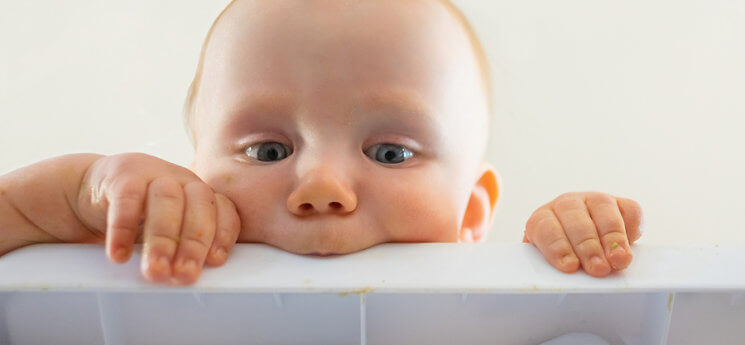He’s red-faced, growling, and he’s ready to sink his teeth into another child’s shoulder. No we aren’t describing Dracula; we’re talking about your normally sweet, adorable toddler—who’s turned into a biter. The problem’s actually more common than you might think:
One out of every 10 toddlers bites, according to the National Association for the Education of Young Children. Still, that doesn’t make it okay (or any less upsetting!). So why is your tot doing it—and what can you do to help him stop?
Often, biting is the result of underdeveloped language skills. “The child probably wants to make social contact, but doesn’t yet know how,” says Fran Walfish, Psy.D., a child psychotherapist in Beverly Hills, California.
It could have to do with your child still trying to figure out how to express negative emotions, too. “I want it and I want it now is the theme for toddlers,” Walfish says. Here’s how to help your little one cope without using his teeth (on others, at least).
Here’s how to put an end to the biting.
Avoid punishments
Experts agree they aren’t very effective for kids under 4, who aren’t yet cognitively equipped to process right from wrong. Another reaction that won’t work? Biting back. It just ends up teaching your child that biting is OK and that bigger people can bite harder.
Don’t get (outwardly) mad
It’s hard watching your kid hurt someone, even if he didn’t really mean it. Instead of losing your cool, understand that your toddler is on a learning curve—and do what you can to help him evolve.
Talking usually works best: “You bit Mommy because you wanted a cookie. No biting, let’s say, ‘I want a cookie, please,’ instead.” This walks your child through the experience of what he really wants with words.
Turn to a temporary vice
The over-excitement or frustration that usually leads to biting tends to happen because toddlers aren’t yet able to control their feelings the way older kid and adults can, Walfish says.
Fortunately, there are still ways to help them vent: When your toddler tries to bite, give him his binky or a plastic biting toy and say, “No biting people, bite this instead.”
That way, you’re able to explain that biting hurts and makes Mommy and Daddy sad, and he’s still able to release his emotions.




